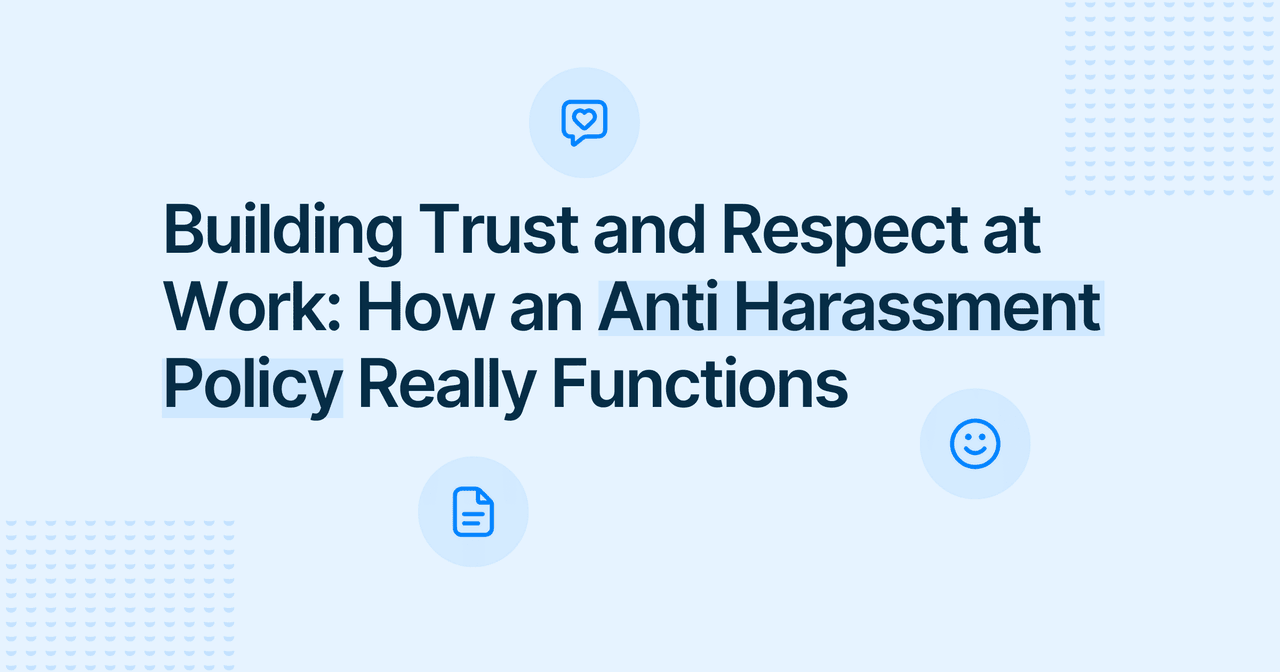Tips for Managing Cyberbullying at Your School
Whistleblowing
Published
2021-09-07
Reading time
3 min
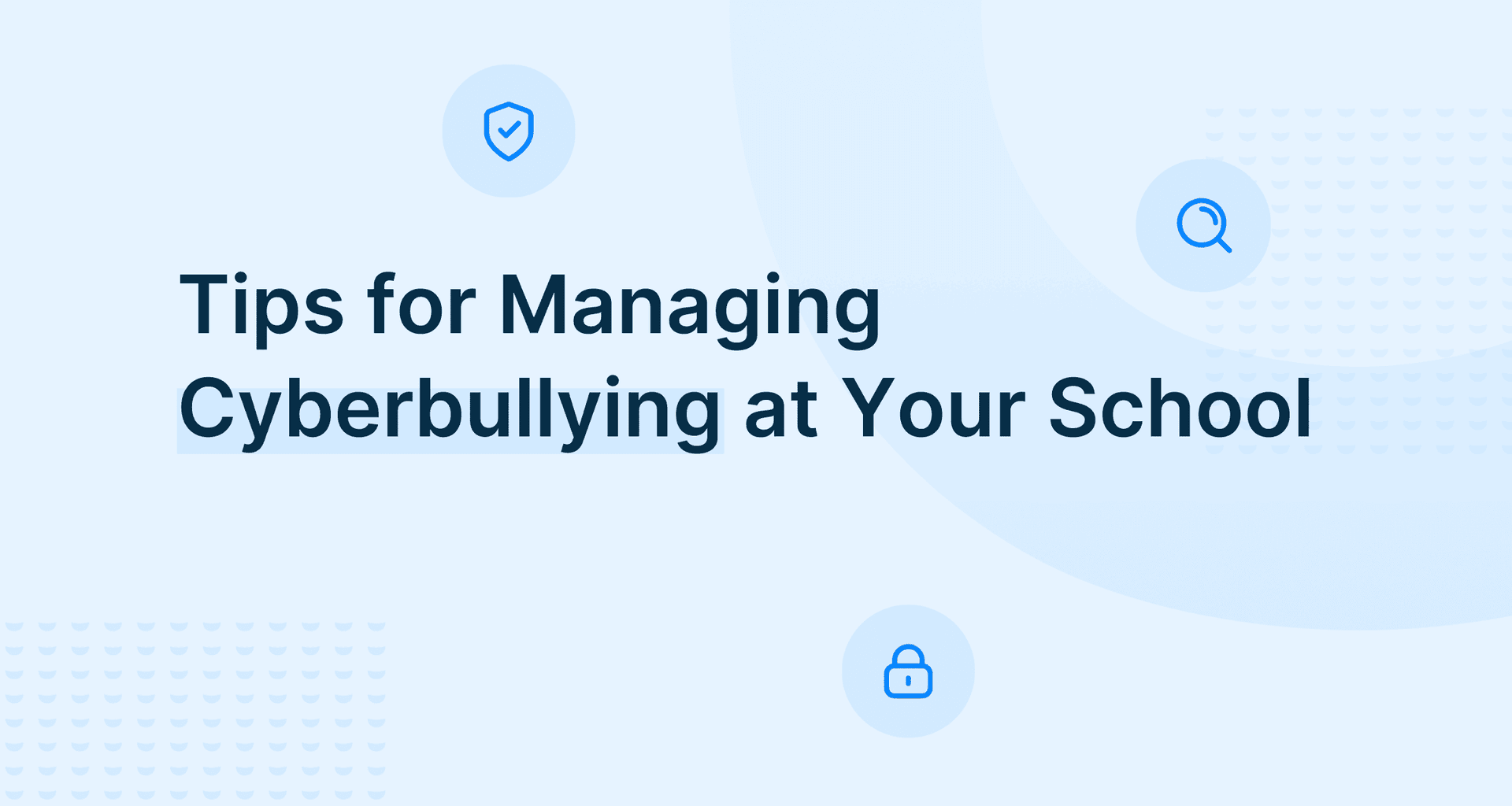

Table of contents
Subscribe to our newsletter
Bullying, in all forms, is a huge problem amongst South African school-going children, which directly impacts the mental health of all learners involved (victim, bystander and bullies).
57% of learners experience some form of bullying at school. 1 in 5 South African teens have experienced cyberbullying first-hand and 84% say they know someone who has been bullied online.
Everything you need to know about cyberbullying is below 👇
What is Cyberbullying?
Imagine a note, filled with rude insults, being sent around the classroom. Eventually, the note is intercepted by the teacher who tears it into pieces and throws it in the rubbish.
Now imagine the same note typed as a WhatsApp message and sent from learner to learner. One learner decides to post it on Instagram where friends can read and share it instantly.
The note cannot be torn up and thrown away, but instead quickly moves through online sites to an audience of hundreds or even thousands.
Why do children cyberbully?
Understanding Cyberbullying from the Bully’s side is so important!
Teens might cyberbully because they feel hurt, have a low sense of self-confidence, they may feel insecure, feel neglected, or they may be being bullied as well.
The need to gain likes, shares, downloads and followers on social media can influence teens to make choices they would otherwise not make. For example, they may be trying to fit in, looking for attention, struggling academically, reinforcing what they see online, for revenge etc. We see this a lot.
It doesn’t make it right or okay but understanding why a child bullies another allows us to help the bully.
How does cyberbullying affect victims?
The effects on victims or ‘cybervictims’ can be huge and irreversible. They may start to feel overwhelmed, vulnerable, powerless, humiliated, hopeless and angry which may lead them to want revenge, they may also start to feel depressed, anxious, suicidal. They may start self-harming behaviours or having physical symptoms.
These are just some of the possible affects, remember every child is different and experiences things in their own way.
Understanding the bystander
The most common way to experience cyberbullying is by witnessing these behaviours as a bystander – a ‘cyberbystander’.
This is when adolescents see the behaviour occurring between the cyberbullies and cybervictims but do not get involved in the situation.
It is important to understand more about cyberbystanders as they are less likely to report bullying to adults than those who are bystanders of offline bullying.
What should we do to help?
The idea that school and home are two separate spaces no longer exists.
The emphasis now needs to be on creating a culture of responsibility online. Schools should increase awareness about bullying as well as establish and enforce clear bullying policies.
Schools need to train their staff to be digital citizens as well as be able to recognise the signs among their classes.
The do’s of helping the bully
The do’s and don’ts of helping the victim
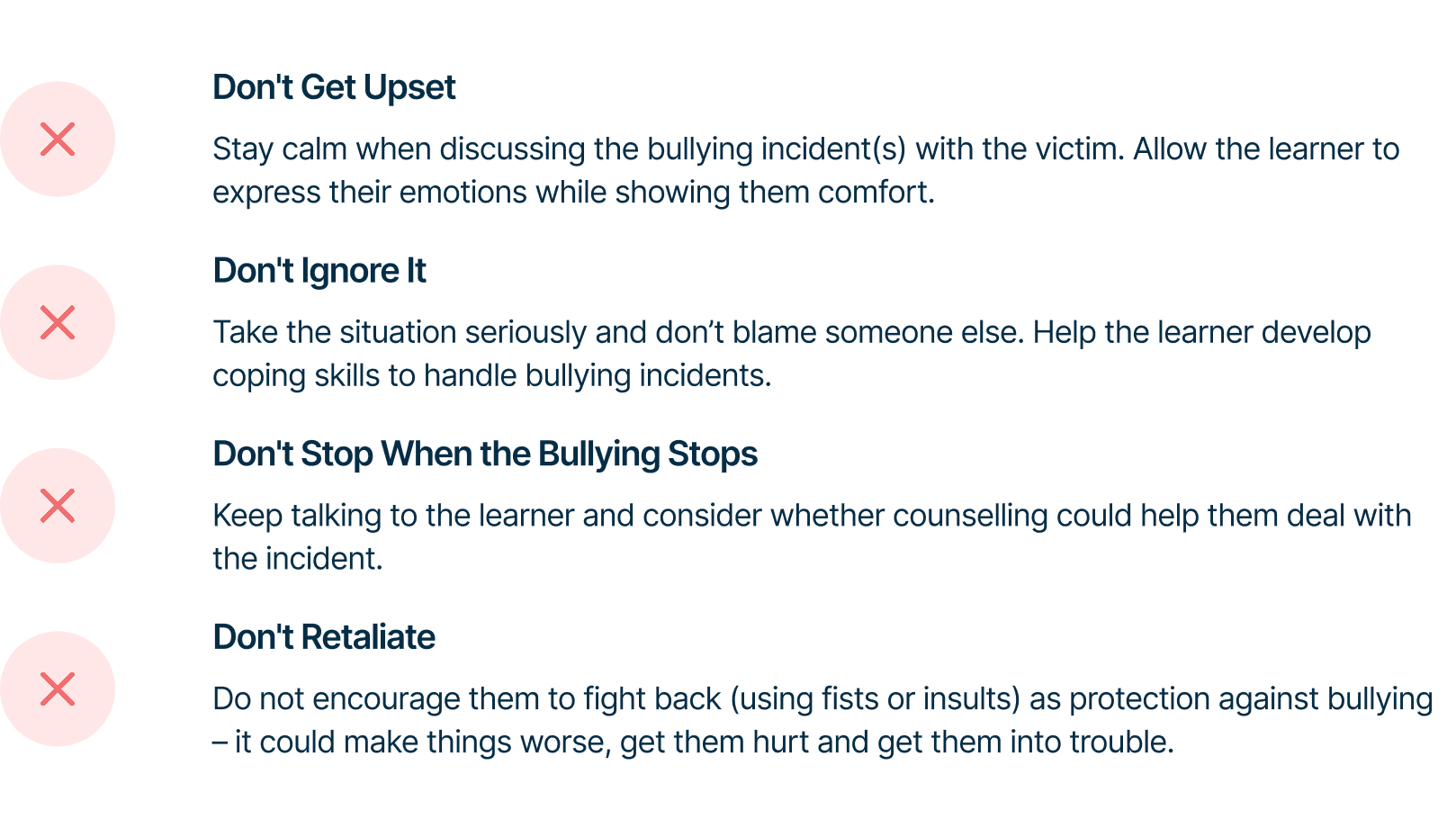
We can help you 💙
We want you to know that you are not alone! FaceUp’s team of Registered Counsellors, Psychologists and Teachers are here to help you from the software side of FaceUp all the way through to launching awareness campaigns. If you need support to manage reports coming through or advice on what protocols need to be followed from a legal perspective – we are here for you!
Keep Reading

Alaa El-Shaarawi2025-12-197 min
Company Ethics Policy: How to Set Standards That Guide Every Decision
Workplace Environment
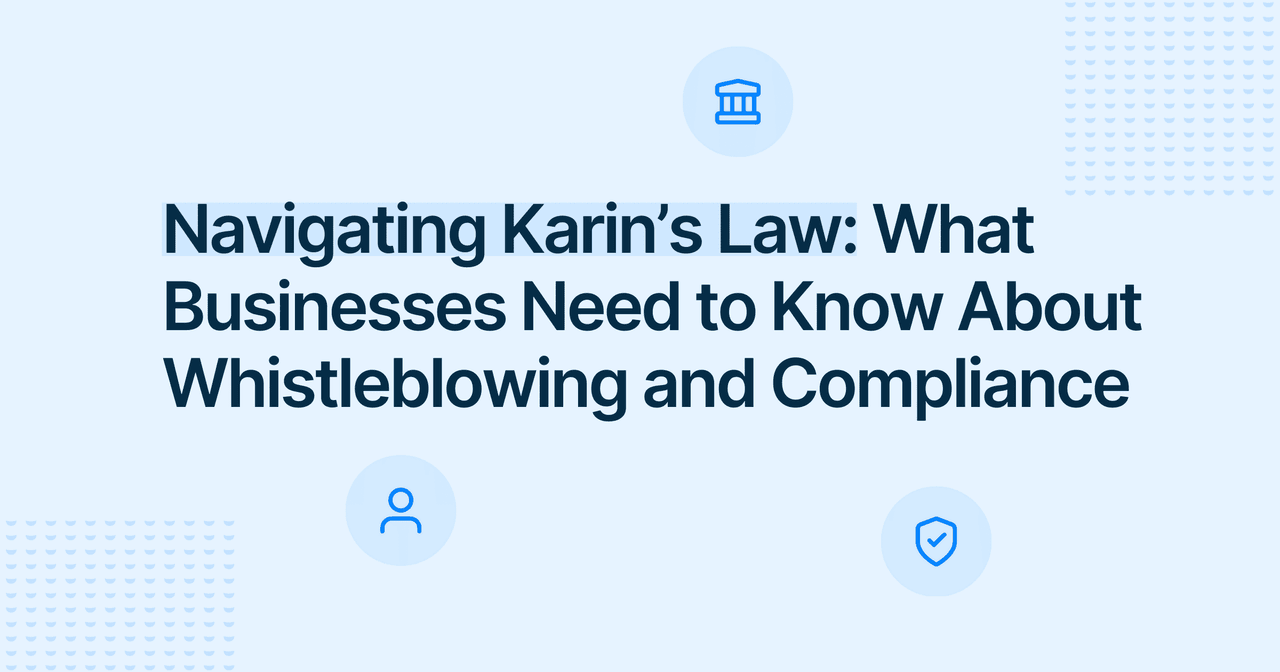
Marie Roland2025-12-165 min
Navigating Karin’s Law: What Businesses Need to Know About Whistleblowing and Compliance
Whistleblowing

Alaa El-Shaarawi2025-12-087 min
What Is an Ethical Code of Conduct? The System Behind Ethical Behavior in Business & Healthcare
Workplace Environment

